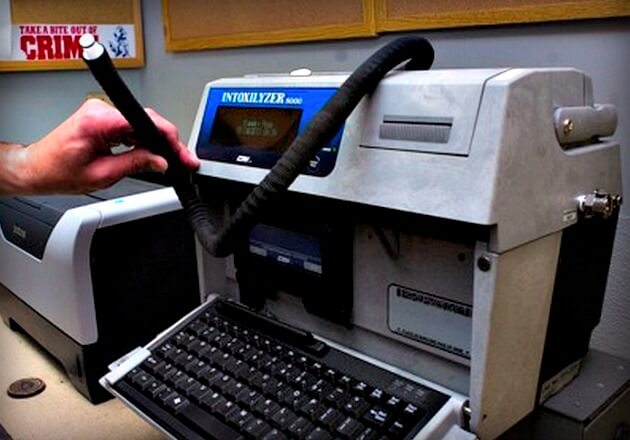
If you’re investigated for a Virginia DUI, a powerful tool law enforcement employs is a breath or blood alcohol test to determine your Blood Alcohol Content (BAC). Under Virginia Code Section 18.2-266, Virginia’s foundational DUI statute, your BAC provides an inference of intoxication if it is at least (.08). Under Virginia Code Section 18.2-270, Virginia law provides for mandatory jail time the higher your BAC.
Given that, it’s easy to understand why law enforcement has a massive incentive to compel you to take a blood or breath test. It’s also easy to understand why suspects of DUI have a huge incentive to not take the test.
Virginia punishes you for refusing a breath or blood test.
Given the need for BAC results in DUI investigations, the Virginia General Assembly has made it illegal for Virginia DUI suspects to unlawfully refuse a breath or blood test. Pursuant to Virginia Code Section 18.2-268.3, if you were lawfully arrested for DUI, you are required to submit to such a test. For the first violation of this statute, it is a civil offense and you lose the right to drive in Virginia for a year. For a second violation within ten years, it’s a class I misdemeanor, and you lose your right to drive in Virginia for three years.
Yes, the courts have said it’s Constitutional.
You’re likely asking, “But, James, I thought that I have the 5th Amendment Right to Remain Silent?!” Yes, I ask the same question myself. However, Virginia Courts have held that driving in Virginia is a privilege. And by driving on our roads, we’ve consented to submitting to these tests. Stated another way, if you wanted to remain silent, you should have stayed off of our roads.
To me, this logic is flawed. But, under current Virginia law, it is the rule. If you violate it, you will be punished accordingly.
What are the consequences of your refusal? The loss of your driving privileges.
As stated above, for a first offense, you receive a civil penalty and a one-year license suspension. For a second offense within ten years, you receive a class I misdemeanor and the right to drive for three years.
But wait, things got better on July 1, 2020.
Before July 1, 2020, the consequences of a civil refusal were much more harmful than what appeared on the surface. That’s because a civil refusal used to result in a “hard suspension” of one’s right to drive. This meant that, if convicted of civil refusal in Virginia, you were prohibited from driving for a year for any purpose whatsoever.
In practice, that meant that if someone was charged with a Virginia DUI and civil refusal for the same incident, despite having a defensible DUI, they would be compelled to take a plea deal. That’s because most people need the ability to drive for the fundamentals of life. This plea deal usually entailed the prosecutor dropping the civil refusal, and the accused pleading guilty to the DUI because at least he or she could get a restricted license to drive per the DUI statute.
Fortunately, Virginia Code Section 18.2-268.3, was amended in July 2020. Now, after 30 days, someone convicted of a civil refusal can petition the court for a suspended license to allow them to drive for limited purposes provided in Virginia Code Section 18.2-271.1(E).
Are there legal defenses to the charge of civil refusal?
It will depend on the facts of your case. In short, the first aspect to look at is whether law enforcement was permitted to compel you to take the breath or blood test in the first place. For instance, if you weren’t driving on a “public highway,” the Virginia courts have found that an accused was not required to take such a test. (How the courts define “public highway” is not straight forward, however).
Other defenses may be that law enforcement lacked probable cause to arrest you for a DUI. Or, they failed to properly inform you of your rights and obligations.
Still have questions?
Make sure to check out our Virginia DUI Practice Page where we’ve answered many other questions you likely have. James Abrenio is a Fairfax-Based Personal Injury & Criminal Defense attorney who practices throughout Northern Virginia. You can learn more about James Abrenio, some of our Prior Results, and Read Our Reviews. Make sure to contact us at Ph. 703-570-4180 for your Free Consultation.
